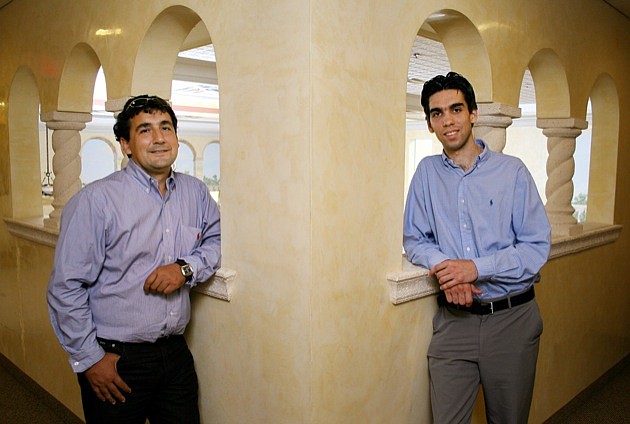- November 26, 2024
-
-
Loading

Loading

In 10 years of running hotel construction projects on the Gulf Coast, Frenchman Eric Collin has come to a startling conclusion: In more than a few ways, socialist-leaning, regulation-thick France can be a bedrock of efficiency compared to Florida when it comes to getting government approvals of construction projects.
“What surprised us the most is the regulations,” says Collin, an executive vice president of Sarasota-based Finergy Development, which is run by his Italian cousin, Enzo Gagliardi. “We were never expecting to find an environment that was even more regulated than Europe.”
Collin and Finergy have nonetheless survived the government gauntlet many times, with completed projects including a four-story downtown Sarasota office building and a large Homewood Suites by Hilton conversion project to show for it. Company executives declined to release annual revenue figures for the last three years, although the company was at $9 million in 2006 revenues.
Despite his aversion to government hurdles, there Collin was in early December, leaving a Sarasota County Commission meeting with a smile.
Finergy, it turns out, was one of three local companies approved by the county to borrow low-interest funds through a $28 million federal government economic recovery program administered by the county. The company plans to use the money to restart a stalled 100-room Hilton Garden Inn construction project in an underdeveloped part of southern Sarasota County.
“This isn't a bailout,” says Collin, weary of being too reliant on government. “It's not a loan. It's still on us to find the lenders and borrow and repay the funds.”
The county approved Finergy to borrow up to $10.4 million for the project, which would cover the majority of the costs. Finergy conceived of the hotel project, at Albee Road and U.S. 41 in Nokomis, three years ago. The project originally included a small retail and condo component.
Sarasota was one of several Florida counties to participate in the bonds-based economic recovery program, as federal officials cited the county's growing foreclosure and unemployment rates. Under the program, county officials are allowed to let local companies issue tax-exempt bonds, a financing tool normally reserved for nonprofits and sometimes manufacturing companies.
County commissioners approved another $13 million in bonds for a pair of other local businesses at its early December meeting.
Online marketing and advertising firm IntegraClick says it plans to use the funds as part of its move to larger offices in the county.
Meanwhile, Sharky's On The Pier, a well-known waterfront restaurant in Venice, plans to use its bonds to help pay for a renovation project. The restaurant plans to expand its seating capcity to 400 from 300, a $4 million project.
Finance Fiasco
Eric Collin thought his Gulf Coast construction firm was in good shape in early February, as its crews were already pouring concrete for one of the few existing hotel projects in the Sarasota-Bradenton region.
The company, Sarasota-based Finergy Development, broke ground on the hotel project in July 2008. It was planned as a 108-room Hampton Inn and Suites to be built at the entrance of the Sarasota-Bradenton International Airport.
By mid-February, however, the project had turned to chaos.
That's when the bank Finergy was using to cover $10 million of the financing for the $14 million project, Atlanta-based Silverton, received a cease-and-desist order from regulators. The order came just two weeks before Finergy was scheduled to close on the lending arrangement with the bank.
Finergy kept working with the bank and its regulators, in hopes it could salvage some type of loan package. By May, though, those hopes were officially squashed when regulators closed Silverton, which had an office in Tampa.
“In our mind, [the financing] was already done,” says Collin, a native of France who moved to the U.S. about 10 years ago to work at Finergy with his cousin, Enzo Gagliardi. “It was difficult.”
But Collin's solution to the quandary was as stunning as the Silverton closure was difficult. He moved ahead with the project while simultaneously putting together funding from a consortium of French investors.
Collin was ultimately able to assemble the $10 million in lost financing from a collection of investors connected to Finergy's French-based parent firm, also named Finergy. Says Collin: “We needed a source of funding that was independent of the U.S. banking system.”
The gambit worked. The Hampton Inn at the airport, says Collin, is now about two months away from a grand opening.
— Mark Gordon